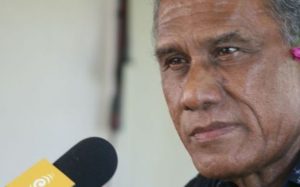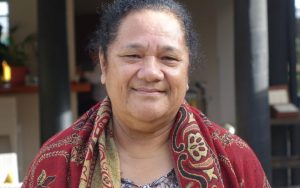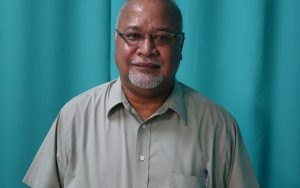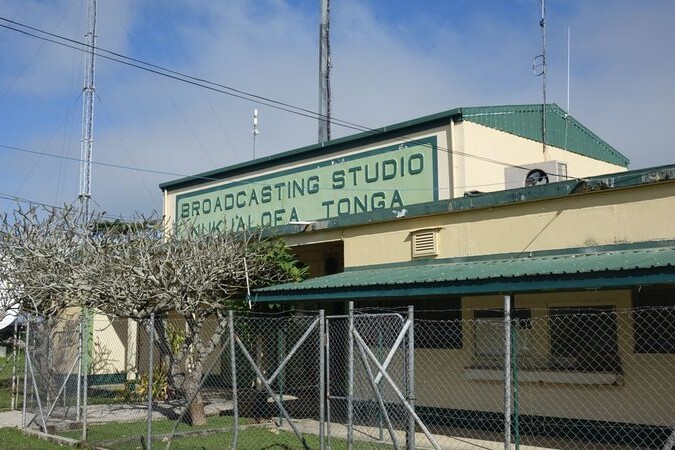By Koro Vaka’uta, RNZI Journalist
Media freedom has come under the spotlight in Tonga ever since the prime minister threatened the public broadcaster over his dissatisfaction of their reporting.
‘Akilisi Pohiva’s government fired the board chair and the general manager of the Tonga Broadcasting Commission, the latter of which is now before the courts.

These were the comments that signalled a growing rift in the relationship between Mr Pohiva and the TBC:
“They have become an enemy of government. They claim the freedom of media should be allowed, should be the same with any other media in Tonga but they should understand there is a basic difference between a private media and also government media. Their main role, to me, is to facilitate the work of the government.”
A consultant for the Tonga Broadcasting Commission said the comments and threats to allow another company to take over its services affected its news coverage.
Shortly afterwards the TBC chair and general manager were also sacked.
Laumanu Petelo said staff were initially intimidated.
“As to changing our stories to focus more on things that will be positive to government, rather than getting stories that are balanced and unbiased,” Ms Petelo said.
“So we felt that we were kind of changing our roles to try to fit in to what the prime minister and government wanted.”

Ms Petelo contended the TBC is not an enemy of government.
She felt, with court proceedings and media coverage of the affair, things are also starting to improve.
The Acting General Manager Mele Kamoto said uncertainty remained.
“Oh I’m sort of, if I can say, sort of unbalanced myself because you don’t really know what’s the future of TBC and what would be the effect, especially on us management staff,” Ms Kamoto said.
New chair ‘Ahongalu Fushimalohi said it is his job to clean up the TBC’s act, in terms of revenue and infrastructure, but also in terms of news coverage.
“There can be no political interference, which is guaranteed under our Constitution and the government is aware of that, but to say label us en enemy, they are actually referring to some news pieces that they believe are not correct and I have to look into it,” he said.
Mr Fushimalohi said he is reviewing the TBC from top to bottom.
Meanwhile prominent publisher Kalafi Moala said the saga had impacted the whole media landscape.
“You’ve got media that have kind of moved back to a position where their criticism of government or government policy has kind of been softened up and then you have media that have crossed the line and gone over and become a government puppet,” Mr Moala said.

“There has been a culture of fear in the media and it is not just a fear of media freedom. It is a fear of if government doesn’t support them, they are going to go down financially. Government is still the biggest advertiser in the country,” he said.
Opposition MP and anti-corruption committee chair, Lord Fusitu’a, said Tonga’s Constitution had provisions to protect freedom of speech and freedom of the press for over a century and was something Mr Pohiva advocated for when he was in opposition.
“So now that the current prime minister has come out explicitly and said he wants to control the Tonga Broadcasting Commission and if they will not succumb to his control he will do what he has done which is fire board members, fire management, fire officers. That is not only in contravention of the principles of any Westminster democracy, but it is in breach of our Constitution.”
The chair of the Tonga Media Council, Pesi Fonua, said while he didn’t condone the prime minister’s actions, life went on for other media.
Mr Fonua said there had always been a split of pro and anti government media outlets in Tonga.
“It’s almost like a party politics, party’s paper,” he said.
“They support this and they support that, but it still has a benefit in a way.
“That’s how I look at it and I mean it is up to you what you want to read but you have all different views so if you look at it squarely, you can have good coverage of what’s happening.”
Mr Fonua also said nowhere had news coverage like Nuku’alofa, where he said there are five newspapers to cater for a population of about 40,000.
But a political researcher believes the media saturation may be problematic.
Tevita Motulalo is part of the Royal Oceania Institute in Tonga.
“You see certain media outlets siding with this government and previous governments had a whole lot of different allies in the media and so we lose the integrity of information so no wonder the electorate, the community is in tatters and confused,” Mr Motulalo said.
But Kalafi Moala said the TBC, which is the oldest and largest media organisation in Tonga, had been able to provide balanced reporting in the past where they were neither anti-establishment or anti-reform.
“In fact sometimes, some of us as independent journalists have been kind of critical of them because they have been too neutral, they have to come out and advocate something.”
Mr Pohiva spent over 30 years calling for democratic change, freedom of speech and political reform, so his actions have surprised many.
Not Mr Motulalo, who said people should have looked at his history with the media.
“He has a media company which he controls with the family, so the pattern is there. So as he becomes prime minister, whatever falls under his authority as prime minister, they should expect similar. Not that I am saying what he did is right or excusable but it was there from the outset”, Mr Motulalo said.
Kalafi Moala, who was jailed alongside Mr Pohiva in 1996 for reporting on parliamentary proceedings, agreed that the prime minister founded the Kele’a which became a propaganda tool for his views.
‘Akilisi Pohiva indicated he believed the TBC feud is over, however former General Manager Nanise Fifita is currently before the courts seeking reinstatement.
Ms Fifita was dismissed at the beginning of May despite her contract having a right of renewal clause.
The Public Enterprise Minister Poasi Tei and the TBC are now being taken to court.
Ms Fifita’s lawyer, William Edwards, said there was no basis for terminating her contract.
“There is no allegation of misconduct, there is no allegation of misfeasance in office.”
“Effectively what we are saying is that she has a right to renew her contract, it has been effectively exercised and the minister now says that sorry he didn’t give his approval to this new contract therefore basically he is not going to accept it,” he said.
‘Ahongalu Fushimalohi said the case had nothing to do with media freedom.

“It’s a policy decision because who wouldn’t be disappointed, if you decide to appointment someone without first running it through us.”
The chairman blamed the ‘liberal’ New Zealand media for bringing up the press freedom issue despite regional and global media groups also expressing concern.
“Who cares what New Zealand says? They keep saying everything. They provide so much aid to us and they dictate the way we should be thinking anyway.”
An injunction hearing into whether Ms Fifita can resume her job until a judicial review into her sacking is heard was adjourned until Friday.
*Koro Vaka’uta received a 2017 Public Media Alliance travel bursary to report on the situation in Tonga.
Originally published by Radio New Zealand. All images courtesy Koro Vaka’uta and Radio New Zealand International.
Related Posts
24th May 2017
Tongan Prime Minister continues his attack on the public broadcaster
Public Media Alliance President, Paul…
4th April 2017
Concern as Tongan public broadcaster is labelled “enemy of the government”
The Public Media Alliance calls on the…

